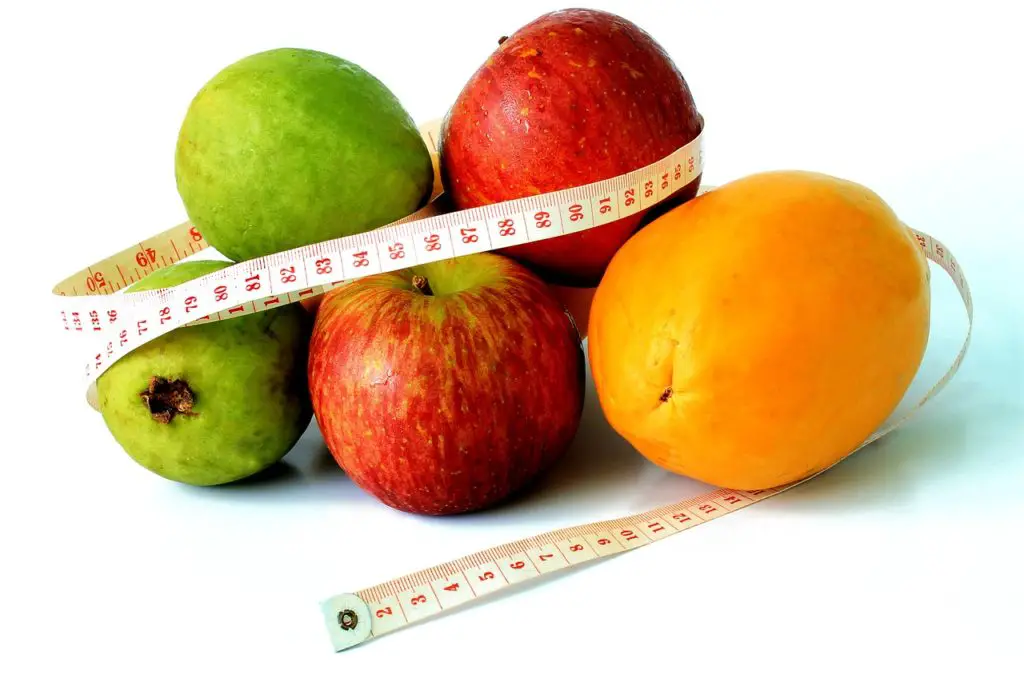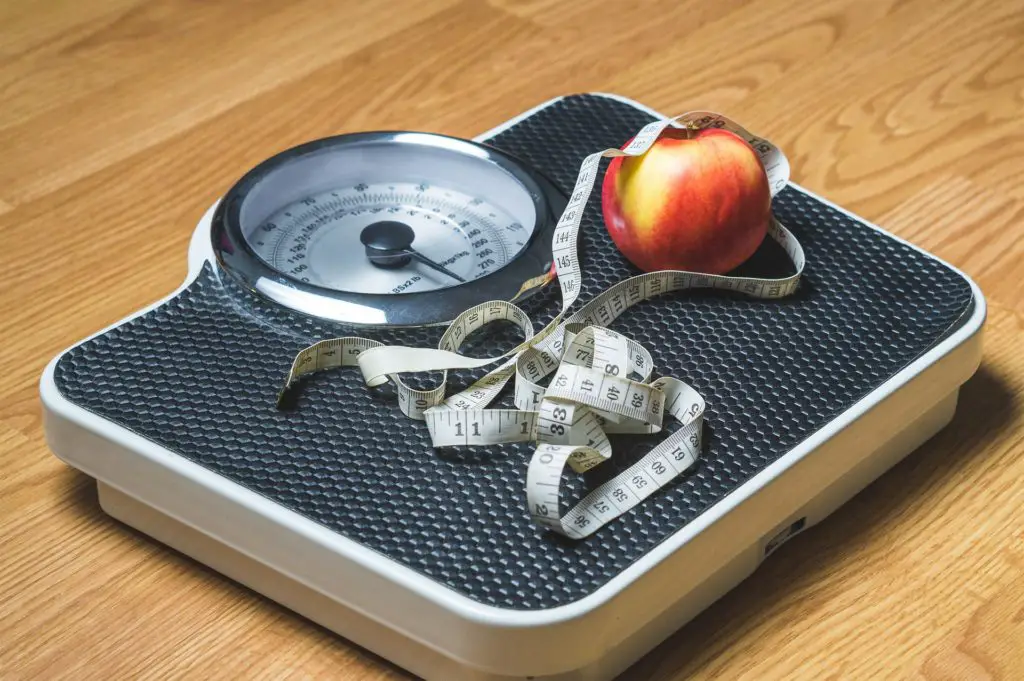Intermittent fasting is promoted for weight management and disease prevention. It is popular for many reasons, and it’s a lot easier to follow than many diets because you just need to restrict your eating windows. It may be a good alternative for a restrictive diet in adults and it’s easier to maintain than many other calorie restriction diets. However, it has not been adequately studied in children and teens.
There is not enough evidence to recommend intermittent fasting for children or teens currently since they are in a period of rapid growth and increased nutrient needs. Restrictive diets like intermittent fasting can lead to ulterior effects like eating disorders.
This is a difficult post to write because Intermittent Fasting is becoming so popular and many teenagers are trying it. I feel very strongly against intermittent fasting for most teenagers. I am interested in the research of intermittent fasting, but the benefits are just not quite promising yet, especially for teenagers.
Keep reading to have all your questions about teens and fasting answered by a registered dietitian nutritionist!

Is Intermittent Fasting Safe for Teenagers to Lose Fat?
In my opinion, teenagers may develop disordered eating habits if they follow an Intermittent Fasting eating schedule. So to answer the main question, it may be SAFE for teenagers to try Intermittent fasting, but I don’t think it is beneficial, especially in the long-run. And eating disorders can be seen as “unsafe” so maybe the correct answer is no, it’s not safe!
Dieting is the most common form of an eating disorder. Eating disorders and disordered eating habits are already extremely common among teenagers, and intermittent fasting is another type of “diet” that may cause more of these unhealthy habits.
Most studies on intermittent fasting have been done on adults. IF studies on adolescents have been controversial. So for now, there are not enough intermittent fasting studies in teens to know for sure if it is safe or beneficial. Most health professionals do not necessarily recommend intermittent fasting to adolescents, especially to young adolescents.
Teenagers are going through an intense period of growth and development, and limiting food intake might negatively affect them, even for overweight or obese teens.
It might be appropriate to wait until age 18 to start an intermittent fasting plan. Consult with your physician if IF would make sense for you in order to lose weight.
Keep reading! I may sound against intermittent fasting for now (the research may change my opinion someday), but keep reading because I’d like to offer my best suggestions for why teenagers may benefit from some form of fasting, who may benefit, how to do it, why most teenagers try IF, and the best ways for teenagers to get to a healthy weight.
What is Intermittent Fasting (IF)?
Fasting has been around for thousands of years, for religious reasons or for health reasons or some of both! Intermittent fasting is a fairly new popular “diet” or eating plan. It is an eating plan with periods of no food or limited calories and periods of unrestricted eating on a strict schedule. The promoted benefits are fat loss, and improved health markers such as blood pressure and cholesterol for decreased risk of disease and health problems.
Many people who are trying to lose weight try intermittent fasting because it can be easier than many other types of dieting. It just restricts when you eat, not necessarily what you eat, however, most IF plans do have an emphasis on eating whole, natural, nutritious foods when you do eat. Water and other low-calorie beverages are typically okay during fasting periods. It’s important to stay hydrated!
There are a few different patterns of intermittent fasting, typically either restricting food for certain days of the week, or for certain hours each day.
The most popular intermittent fasting patterns are:
| Method | Explanation | Possible Benefits | Possible Consequences |
|---|---|---|---|
| 16:8 | Set fasting and eating window, fast for 16 hours per day, eat during an 8 hour window such as 11am-7pm. Can be done everyday or 2-4 days per week. | It’s easy to just extend breakfast later. Best for those first trying fasting. | Harder for those who are hungry at breakfast or very active in the mornings |
| 5:2 | Eating 500 calories 2 days per week and a regular diet the other 5 days. | Regular diet most days of the week | May be difficult on fasting days |
| Alternate Day Fasting | Every other day is fasting and just eating 25% of calories | Keeps calories low | May raise LDL levels |
| 24-hour fast | Fasting completely for 24 hours, done about 1-2 days per week. | More strict, more extreme side effects such as fatigue, headaches, irritability, low energy, inability to focus. |
Should Teens Try Intermittent Fasting to Lose Weight and Be Healthier?
Overweight teens may be interested to try intermittent fasting because it could easily fit into their schedule without too much change. Teenagers tend to snack and graze all day, they are growing and need a lot of energy and nutrients, however, all the “snacking” may not be very beneficial as well. Reducing the eating window may help some obese teens, especially by first reducing amounts eaten in the evenings and late at night.
Teens Should Only Attempt Intermittent Fasting If:
- You are overweight or obese
- You are past puberty in the later teen years
- Your doctor has suggested it as a healthy eating pattern for you individually
Teens Should NOT Attempt Intermittent Fasting If:
- Your friends or parents are pressuring you to do it
- You have a history of eating disorders or any type of disordered eating
- You don’t know much about intermittent fasting or fully understand the benefits and consequences
- You regularly don’t eat enough or skip meals
- You are sick or have other health concerns such as diabetes, thyroid problems, PCOS, etc.
- Your doctor doesn’t recommend it
- You are underweight
- You are on medication
- You are pregnant or breastfeeding
If you are interested in weight loss as a teenager, it’s important to learn what advice is real and legitimate, and what just comes from fad diets and harmful sources. I’ve written an e-Book guide and month-long meal plan to help teens establish habits that will help them get to a healthy weight and maintain it. It will help teens develop attitudes and behaviors that will lead to a positive relationship with food and nutrition throughout their lives.
The book is available in the Downloads section of my website here – Downloadable Content.
Should Teenagers do the 16:8 Intermittent Fasting Method?
Since teenagers need a lot of nutrients for growth and development, teens doing IF would need a longer eating window to be able to get all the nutrients they need to not stunt their growth, since they need more nutrients than an adult.
If intermittent fasting is appropriate for teens, I would recommend following the 16:8 method with an 8-hour eating window. Many individuals already follow a similar eating window by not eating late at night. It might not be too challenging by shifting breakfast/lunch a little later and dinner earlier, such as scheduling eating hours from 10am to 6pm each day. You need to be smart about it.
Most diets are not recommended for teenagers, especially restrictive diets, but you may be able to find a way to safely try intermittent fasting. The standard american diet probably isn’t safer for most teenagers than IF, so IF might be an okay choice for some individuals.
Overall, the most important part is nutrition education! IF will not work for you if you continue eating the same unhealthy meals and snacks and high-calorie junk foods. Eat real foods and decrease sugars. The timing is key.
A better focus on whole, nutritious, fueling foods would be best for teens during the eating hours. Don’t restrict calories or food groups. See how you feel, listen to your body, ease into it. Check in with your doctor before and during.
Typically I recommend for teenagers to eat every 3-4 hours, especially for athletes to keep their bodies fueled. I wouldn’t necessarily recommend fasting to many teens, but it may be safe to try depending on your individual circumstances and goals, for overweight or obesity, etc.
If you start IF, you have to be intentional about eating a healthy diet. During the times you can eat there is no room for junk food and highly processed foods, the body needs to be fueled with whole, natural, nutritious, well-planned meals.

See also: What is the Best Diet Plan for a 15 Year-Old? Tips from a Dietitian and What is the Best Diet Plan for a 16 Year-Old? From a Dietitian
Reasons Why Teenagers Choose Intermittent Fasting
I have coached hundreds of people currently following, or wanting to start intermittent fasting over the past 3 years. Popular reasons I have found why teenagers choose intermittent fasting:
- It seems easier than a diet because food choice isn’t necessarily restricted, just eating hours.
- Teens also think IF will help them lose fat, stop feeling dependent on food, minimize food cravings, and learn to see food as fuel rather than something to be enjoyed (food can be both!).
However, teenagers who were actually successful with intermittent fasting focused on healthy foods and exercising. An overall balance is most important, not just limiting the hours you eat.
Possible Benefits of Intermittent Fasting
Some research seems promising, but is not necessary conclusive, even in adults. Research on intermittent fasting is not good enough yet. It has small sample sizes and short durations. As a relatively new trend, more high-quality, long-term studies are needed to show a direct effect and the benefits of intermittent fasting in any age group.
Possible Benefits of Intermittent Fasting:
- Weight loss/weight maintenance
- Blood sugar control
- Improved metabolic changes such as reduction in triglycerides, LDL cholesterol, blood pressure, weight, fat mass, blood glucose
- May help suppress appetite
These benefits come from research in mostly adults. Studying teenagers on an IF diet doesn’t seem to be safe. Restricting teenager calories can lead to disordered eating in the future, so studies are not seen as ethical.
IF does seem to be effective for weight loss, but not more effective than regular calorie restriction. Few studies have found it to be more beneficial than other methods of weight loss such as calorie reduction.
Is Fasting Safe for Teenagers?
Teens who diet or skip meals and more likely to develop an eating disorder.
Research has concluded that skipping breakfast may be harmful for many teens and those who do skip breakfast tend to have a higher body weight. Fasting or skipping any meals is not usually recommended for children and teenagers. Fasting for religious purposes is okay as long as you are cleared by your doctor, not restricting calories long-term, and have a good plan before and after fasting.
The teenage years are not the time to follow a restrictive diet. It is a time to build a healthy relationship with food and learn about your body and build positive body image, no matter your body size.
Will Intermittent Fasting Stunt Growth during Puberty in Teenagers? Does Intermittent Fasting Have a Negative Effect on Teens?
Kids need a lot of calories and nutrients during growth spurts and puberty. If fasting decreases calorie intake and nutrient intake too much, then it could affect growth and development such as brain development and bone strength.
Teens doing intermittent fasting should follow the 16:8 method to slightly reduce eating hours instead of a focus on overall calorie reduction many days per week. If teens want to try intermittent fasting, likely starting around age 18 is best once your body is more developed and finished with growth spurts.
You should have a healthy relationship with food and a good understanding of how your body works plus a knowledge of good nutrition, not just a desire to follow a trendy diet or skip meals because you are busy.
The intermittent fasting regimen is not right for everyone, it causes changes in blood sugar levels, hunger, fatigue, irritability, inability to concentrate, etc. It can also cause disordered eating patterns with a preoccupation with food, food intake, eating schedules, and strict “food rules“.

Can Intermittent Fasting Lead to Disordered Eating Habits in Teens?
I’ve answered this question a few times, but here is some more information and my thoughts.
Disordered eating is linked to preoccupation with food and calories, developing food rituals, and severely limiting food intake through fasting. That sounds a lot like many of my friends who try intermittent fasting. Intermittent fasting can be a precursor to disordered eating.
Teenagers are impressionable. No teenager should have strict food rules, limited eating schedules, etc. It could lead to distorted thoughts about food. How can fasting and restricting food intake create a healthy relationship with food when teenagers are just learning about healthy nutrition and their growing bodies?
A lot of the public does not understand disordered eating habits when so many restrictive diets are common such as keto, gluten-free, low-carb, intermittent fasting, etc. Eating disorders are seen as more common in women, but affect males just as severely and no one notices or talks about it.
Men are seen as “productive” and “in control” and following a “noble pursuit” when following strict diet rules, but women are more often labeled as having an eating disorder for following the same patterns. See Jack Dorsey’s eating plan for an example.
The popularity of intermittent fasting seems to be a result of societal obsession with food and health and self-improvement at any cost.
I know a lot of people doing intermittent fasting who have signs of disordered eating, but it doesn’t have to turn into that if you’re smart and make a healthy plan. If you want to be a healthy weight and develop a healthy relationship with food it might be better to focus on mindful eating practices and listening to your body and not fasting. Instead, focus on not eating late at night, improving sleep quality and quantity (fasting overnight for 12 hours is beneficial) and eating a nutritious breakfast.
Does Intermittent Fasting Decrease Metabolism?
Diets that restrict calorie intake longterm may often decrease metabolism as your body adapts and slows down to a lower energy intake. However, this may not be the case with intermittent fasting as the fasting schedule changes and food is not always restricted.
Certain days or hours of the day where food intake is “normal” and not restricted may help so your metabolism doesn’t slow. However, if you regularly eat well below your calorie level or at too low of a calorie level (typically around 1200 or less for females and 1400 for males), your body will most likely adapt and it will be harder to lose weight.
The Safest Ways for a Teenager to Lose Weight:
Most studies for healthy weight in children have focused on overall best behaviors, and not “best diets” for adolescents. Recommended treatment for obesity in teens focuses on family-based behavior modification.
Instead of following a restrictive diet, the better focus is on healthy habits such as decreasing screen time, increasing physical activity, better access to healthy foods, and improving family eating habits.
Overall, improving physical and mental well-being is better in the long run for a teenager. No dietary restrictions are needed! It’s not good for teens to have strict “food rules”. Develop a relaxed and enjoyable relationship with food and healthy body image by following these suggestions:
- Plan meals and snacks throughout the day, don’t get too hungry that you over-indulge at meals. Well-timed snacks are appropriate if meals are longer than 4 hours apart.
- Limit sugary beverages, highly-processed snack foods, and fast foods.
- Focus on nutrient-dense foods such as fruits and vegetables, whole grains, low-fat dairy and protein. These foods are not only nutritious, but can also promote weight loss and help you feel full between meals.
- Eat together as a family as often as possible and put away the screens. Talk about meal planning, go grocery shopping together, and prepare, eat, and clean up meals together.
- Don’t restrict any food groups or nutrients such as carbs, fats, or dairy. Growing teens need a wide variety of foods! Only restrict certain foods for allergies/sensitivities or other medical reasons.
- Avoid fad diets– they might work for a short time, but they aren’t sustainable long term and can harm a teen’s growing body.
- Don’t skip meals– it actually may cause you to over-eat later in the day, plus you’ll be able to focus better in school when you are well nourished and fueled.
- Don’t buy “diet foods” such as expensive supplements, protein drinks, and “lite” or “sugar-free” foods. Artificial sweeteners can actually be harmful for a growing teen. Check out more details from my post on artificial sweeteners in teens here.
- Limit screen time to less than 2 hours per day.
- Incorporate regular physical activity.
- Set healthy, realistic goals. The best thing you can do is practice mindful eating. Learn to listen to your body, your hunger and fullness cues, how your body feels, etc. That will be the best help for you long-term for correct portion sizes, knowing how often to eat, what types of foods are best, and overall healthy habits.
- Drink enough water and stay hydrated. Water can help you to focus and feel full between meals, which limits snacking and unhealthy cravings.
- Get enough sleep. Teens need between 8-12 hours per night.
- Limit stress. Find ways to relieve stress without turning to food. Try a new hobby, read, go for a walk, call a friend, etc.
- Don’t compare yourself to others. Having a healthy body doesn’t mean you will be a certain size or look like someone else. Be yourself!
Eat smarter, not necessarily less. Be intentional, don’t just try to restrict food by fasting. It’s best to make healthy lifestyle changes that last long-term, nothing restrictive or difficult to follow or track.
See also: What is the Best Diet Plan for a 15 Year-Old? Tips from a Dietitian
The Bottom Line – from a Dietitian
I love to follow the research on intermittent fasting. Overall, research does not consistently show that IF is superior to low calorie diets for weight loss, biological changes, decreased appetite, etc.
We still don’t know long term effects of intermittent fasting, more high-quality studies are needed. Specific recommendations on intermittent fasting for weight loss cannot be made yet.
As a dietitian I am strongly in support of mindful eating and intuitive eating habits. I don’t think restrictive eating habits are good for any healthy individual and don’t typically support fad diets, such as low carb, keto, gluten-free, or intermittent fasting trends because of the obsession and focus on food and “food rules” and the unhealthy relationship with food it can create.
However, I do recognize that every individual is unique and some people are more successful on these certain diets than others. Weight loss isn’t necessarily a “one-size-fits-all” approach. What works for one person does not necessarily work for another. Intermittent fasting may work well for certain individuals and not for others.
I support individual choices and help individuals make a healthy plan that is best for them and their needs, habits, and lives. It can take time and practice to see what works for you. If you want to try intermittent fasting for a few weeks or a month, that may be appropriate as long as you are listening to your body and making an appropriate plan.
See Also:
- What is the Best Meal Plan for Teenage Athletes?
- How Many Snacks Does a Teenager Need Per Day?
- The Best and Worst Foods for Teens
- What is the Best Diet Plan for a 15 Year-Old to Lose Weight?
- Should a Teenager Count Calories?
- How Much Sugar Should a 14 Year-Old Have Per Day?
Fueling Teens eBooks
Need more help with your diet this year? Get help from a registered dietitian nutritionist, check out my newest eBook:
Includes:
- 75+ pages with insightful infographics
- 28-day meal plan to help you eat well and eat right
- Healthy Snack list
- Tips for Gaining or Losing Weight
- Calculations for Daily Calorie Needs, Protein Needs, etc.
- Supplement Recommendations
- Meal Schedule
- …And More
Also Available From Fueling Teens:
- FREE Downloadable Meal Plan for Teen Soccer (Football) Players
- Nutrition Game Plan for Teenage Basketball Players
- Nutrition Game Plan for Teenage Football Players
References:
https://academic.oup.com/ajcn/article/108/5/933/5201451
https://www.hsph.harvard.edu/nutritionsource/healthy-weight/diet-reviews/intermittent-fasting/
Written by Katherine Harmer, RDN
Fueling Teens is a participant in the Amazon Services LLC Associates Program, an affiliate advertising program designed to provide a means for sites to earn advertising fees by advertising and linking to Amazon.com. We also participate in other affiliate programs which compensate us for referring traffic.

